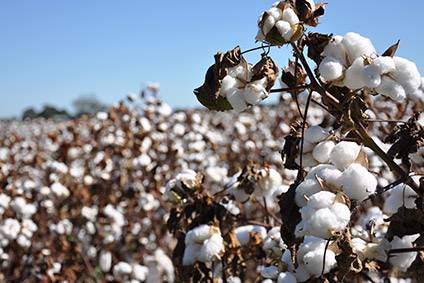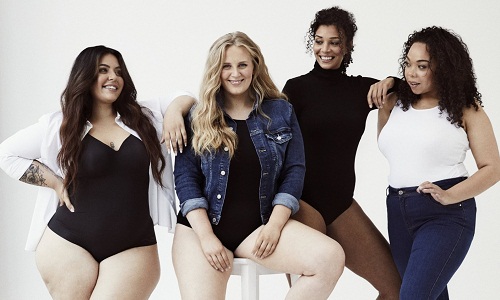FW
Extinction Rebellion (XR) activists plan to launch #PayUp campaign in London this week to urge fast fashion brands to financially support suppliers overseas throughout the pandemic. The protests orchestrated by XR’s Fashion Action and Textiles Rebellion arms will target brands accused of either failing to pay for orders which were completed or in production when lockdown fore ced non-essential retailers to close, cancelling orders at short-notice in breach of contract terms, or pushing for significant discounts from suppliers.
Among this cohort are the likes of Arcadia Group, owner of Topshop and Miss Selfridge; Urban Outfitters Group, which also owns Free People and Anthropologie; Primark, GAP and Levi Strauss.
During the protests, attendees will wave banners and flags, erect signs and offer to repair damaged clothing. Speeches and poetry performances will also take place. According to non-profit Support Garment Workers, which is co-orchestrating the #PayUp campaign, $3billion (£2.4billion) worth of completed and in-process orders for garments, footwear and accessories have been cancelled or put on hold as a result of Covid-19 in Bangladesh alone. This trend has put two million jobs at risk, the organization estimates.
Since the #PayUp campaign first launched, swathes of brands have publicly vowed to honor all completed and in-process orders and to work with suppliers to negotiate upcoming orders. Among them are ASOS, Next, Zara’s parent firm Inditex and VF Corporation, owner of Timberland, Vans and The North Face.
Aside from XR and Support Garment Workers, #PayUp is being supported by Remake, the Clean Clothes Campaign, Oxfam Australia, Traidcraft Exchange, Labour Behind the Label, the International Labour Rights Forum and United Students Against Sweatshops. Petitions associated with the campaign have collectively garnered more than 210,000 signatures.
Bangladesh Garment Manufacturers and Exporters Association (BGMEA) has requested the government to give registration to its buying houses as associate members. The Textile Ministry in a circular issued on April 1, 2019 made it mandatory for apparel buying houses to get registered with Department of Textiles (DoT). BGMEA has been giving registration certificates to buying houses as its associate members. Until now, BGMEA has registered 1,500 buying houses as its associate members.
In August 2019, BGMEA also sent a letter to the director general of DoT seeking registration for the buying houses who are associate members of the association. However, the request was declined by the department who asked these buying houses to gain membership from their respective associations. The department unilaterally held the Bangladesh Garment Buying House Association responsible for hampering the interests of 1,500 apparel buying houses.
It was mentioned in the letter that the prices of RMG items are being reduced day by day due to uncontrolled buying houses and giving registrations arbitrarily by the associations concerned.
 Global textile industry is making a significant impact with its bold adoption of preferred fibers and materials. Production of fibers has doubled in the past 20 years, reaching an all-time high of 111 metric tons in 2019, reveals Textile Exchange’s new ‘Preferred Fiber and Materials Market Report’. Pre-COVID-19 results indicated potential growth for preferred fibers and materials to be around 146 million metric tons by 2030. However, with altered social and environmental impacts, the market is not expected to grow at the desired scale.
Global textile industry is making a significant impact with its bold adoption of preferred fibers and materials. Production of fibers has doubled in the past 20 years, reaching an all-time high of 111 metric tons in 2019, reveals Textile Exchange’s new ‘Preferred Fiber and Materials Market Report’. Pre-COVID-19 results indicated potential growth for preferred fibers and materials to be around 146 million metric tons by 2030. However, with altered social and environmental impacts, the market is not expected to grow at the desired scale.
Cotton advances while polyester lags
Owing to the existence of a few established programs, the market for cotton is currently more advanced than most other materials. However, the industry needs to urgently increase its market share and also make the fiber most sustainable. Though the share of recycled polyester reached 14 per cent in 2019, the industry is not yet advancing at the required speed and scale as low fossil-based polyester prices creates market challenges for recycled and bio-based polyester, says the report. Due to technical challenges and less attention due to lower volumes, the market share of preferred polyamide is still low compared to polyester. Most recycled polyamide is currently made from pre-consumer waste, some also from discarded fishing nets. Increasing the use of post-consumer textiles is needed, the report suggests.
However, the industry needs to urgently increase its market share and also make the fiber most sustainable. Though the share of recycled polyester reached 14 per cent in 2019, the industry is not yet advancing at the required speed and scale as low fossil-based polyester prices creates market challenges for recycled and bio-based polyester, says the report. Due to technical challenges and less attention due to lower volumes, the market share of preferred polyamide is still low compared to polyester. Most recycled polyamide is currently made from pre-consumer waste, some also from discarded fishing nets. Increasing the use of post-consumer textiles is needed, the report suggests.
Wool creating a positive impact with responsible standards
Though conventional wool dominates the market, the adoption of non-mulesing and preferred wool programs such as the Responsible Wool Standard, is increasing. The industry’s transition to these wool programs offers an opportunity to create positive impact in animal welfare, land use and biodiversity. Another factor that fuels growth is the use of recycled wool which has high impact potential despite a low market share.
Share of recycled MMCFs to increase
The share of Forest Stewardship Council (FSC) and Program for the Endorsement of Forest Certification (PEFC) certified manmade cellulosic fibers or MMCFs is around 50 per cent. Yet, the industry still sources around half of all MMCFs from ancient or endangered forests remains high. The current market share of “recycled MMCFs” is estimated to be below 1 per cent. However, it is expected to increase significantly in the coming years.
A growing interest in animal welfare, deforestation, land use and climate change issues has changed the focus of the leather industry. The Leather Impact Accelerator developed by the leather industry accelerates positive actions along the leather value chain. Increasing awareness about animal welfare has also led to the development of standards such as the Responsible Down Standard.
Making supply chains risk free
The use of preferred down standards helps to reduce the risks along the supply chain, says the Textile Exchange report. The report aims to reduce carbon dioxide emission from the textile fiber and material production by 40 per cent by 2030. It cites the examples of a few companies that are exploring innovative approaches to recycle carbon and directly use it as feedstock for textiles. For instance, led by the Institute of Textile Technology at RWTH Aachen University Covestro and its partners last year made elastic textile fibers based on carbon dioxide by replacing crude oil as a raw material. Similarly, Fairbrics with Airwear is developing a technology to convert greenhouse gas into sustainable polyester, while LanzaTech is developing a carbon recycling technology to create clothing like yoga pants from the CO2 emissions.
 As adopting a sustainable lifestyle becomes more and more important today given the current situation with COVID-19, plus-size shoppers are at a disadvantage as sustainable clothes are normally not available in their sizes.
As adopting a sustainable lifestyle becomes more and more important today given the current situation with COVID-19, plus-size shoppers are at a disadvantage as sustainable clothes are normally not available in their sizes.
Affordability hampers sustainability
Independent brands do not normally create a full size sustainable range due to the lack of demand. Hence, many plus-size influencers end up working with fast fashion brands. Also, plus size fashionstas are expected to be more aware, ethical and sympathetic towards wider and more important issues within the industry. Danielle Vanier, a plus-size blogger, agrees that there needs to be a greater emphasis from slimmer people on sustainable brands to extend their sizes.
Quite often, eco-friendly fashion is looked upon as an investment or an expensive purchase that can be worn and re-worn over the years. It necessitates a continuous cash flow for people in these categories. However, fat people earn lesser than thin people, says a recent report. Hence, before urging them to buy sustainable clothes, the industry first needs to address their financial capabilities.
necessitates a continuous cash flow for people in these categories. However, fat people earn lesser than thin people, says a recent report. Hence, before urging them to buy sustainable clothes, the industry first needs to address their financial capabilities.
Industry needs to be all-inclusive
Also, eco-friendly plus size clothes are rarely sold by charity shops and vintage stores. These stores rarely stock above size 18. According to Alissa Schmitz, Owner, Plus Babes Vintage, many vintage stores don’ consider selling plus-sizes as they want to act exclusionary since they define themselves particularly through their ‘cool’ customers.
Emphasizing industry needs to create more sustainable clothes for plus size customers, writer and influencer Stephanie Yeboah says sustainable fashion movement needs to be more inclusive. Consumers can’t wear sustainable clothes if fashion brands are phobic towards plus sizes. The fashion industry can’t claim to be ethical if they fail to meet the demands of the entire industry. She feels, thin bloggers who boycott fast fashion brands to promote sustainability, should also boycott brands that refuse to supply a full size range to their customers. This will reflect the solidarity within the industry and invoke real progress.
US import of apparels import from India has sharply declined in May ’20, acceording to OTEXA. The country imported 19.63 million SME garments from India in the month of May which was worth $62.98 million.
In the same month of 2019, the US imported 111.62 million SME garments worth $387.32 million. Hence, the decline registered in May ’20 was 82.45 per cent in volumes and 83.74 per cent in values, on Y-o-Y basis.
The fall in May ’20 over April ’20 was also substantial as shipment from India declined by 70.17 per cent in volumes on monthly basis and 71.44 per cent in values. This was the highest fall of any top country in the list exporting apparels to USA.
Cumulatively in January-May ’20 period, the fall experienced by India’s apparel shipment was 27.08 per cent in values and the country clocked $1,424.63 million revenue as against$1,953.74 million in the same period of the prior year.
It’s worth mentioning here that the US imported $23.92 billion worth of apparels in Jan.-May ’20 period, marking 27.76 per cent decline on yearly basis. India’s share to the US, however, remained unchanged as it was 5.93 per cent in the current year, while the share in the corresponding period of the previous year was 5.91 per cent, in value terms.
Furthermore, unit prices of India’s shipment to the US also decreased to $3.50 in the review period of 2020 from $3.56 in the review period of 2019, noting 1.74 per cent decline.
The lockdown in April and May have clearly hurt the Indian shipment of apparels of USA. The factories in India have started resuming operation from June first week and the reflection of the same will be seen in the subsequent months
In a study ThredUp completed recently, the company found that secondhand sales are expected to double in the next 10 years. Secondhand sales were 3 per cent of total apparel sales in 2009, 7 per cent in 2019 and are projected by the company’s study to be 17 per cent by 2029.
Eighty two per cent cent of people surveyed have bought, or are ready to shop for, secondhand clothes when money gets tighter. Their study showed that this favorable attitude toward secondhand clothing has been steadily increasing: In 2019, the percentage of consumers with a favorable attitude was 70 per cent; in 2018, 64 per cent; in 2017, 52 per cent; and in 2016, 45.per cent
ThredUp has an inventory of over 750,000 previously worn garments. They range from high -priced items from Louis Vuitton, Burberry, Halston and Gucci to popular priced choices from Torrid, Doc Martens, Vera Bradley VRA , Nike NKE and others. Top sellers range from Gucci satchels, Tory Burch backpacks, and Madewell leather bags to dresses by Anthropology, Free People, and Diane von Furstenberg. Also popular are Coach wool sweaters and Everlane cashmere cardigans. Frye boots, Doc Martens, and UGG products, which were also mentioned.
Asia sales at Italy’s Prada will continue to grow in double-digit rates while any forecast for the American market is hard to make due to the health emergency, said the Chief Executive of the luxury group Patrizio Bertelli,
According to Bertelli, the brand is recording robust sales in Italy as consumers had returned to fast and sustained spending. Prada was founded by Mario Prada in 1913. The brand specializes in leather handbags, travel accessories, shoes, ready-to-wear, perfumes and other fashion accessories.
Bertelli is soon likely to be replaced by his son Lorenzo as the brand’s CEO. Lorenzo currently heads the marketing and communications of the fashion house
Beyond Leather Materials, a company that produces plant based, eco-friendly alternatives to animal leather, has raised seed investment fund of €1.1 million with Rockstart and Vækstfonden, led by Angel Investor Steen Ulf Jensen via Jensengroup Investment Fund to further advance its production facilities. The company has developed leather based on fruit waste.
Beyond Leather Materials is a Danish startup based in Copenhagen. It is a B2B supplier of a sustainable alternative textile based on apple pulp, the byproduct from juice and cider production. The product is fully biodegradable, animal free and much more sustainable than animal-derived or synthetic leather.
Rockstart aims to help reduce food loss and waste; Beyond Leather Materials fits perfectly into this mission by upcycling food process by-product into high-end sustainable fashion textiles. It offers a unique product with the potential to drive a real change in our society. The combination of a strong team, a novel product and international investors is why Vaekstfonden has invested in Beyond Leather Material says Jesper Hart-Hansen, investment manager.
Beyond Leather Materials is planning to enter the €70B leather supplier market this year and will start to provide its material to the fashion industry. They will open a new production facility in the Copenhagen area and expand their team.
Root Group of Companies has launched a Swiss technology-based health protective gear known as ‘Corona Killer’ fabrics in Bangladesh. The initiative would make Bangladesh’s textile and apparel industry stand out in the world.
Prof Dr Kamrul Hasan Khan, former Vice Chancellor, Bangabandhu Sheikh Mujib Medical University (BSMMU); Prof Dr Shahidullah Sikder, former Pro-VC, BSMMU; Prof Dr Be-Nazir Ahmed, Infectious Diseases Specialist; Prof Goutam Buddha Das, Vice Chancellor, Chittagong Veterinary and Animal Science University (CVASU), among others were present at the event. Mohammad Razzakul Hossen Tutul, managing director, Root Group of Companies; and Bashar Khan, CEO of the company, including buyers from a few foreign brands were also present at the launch event.
Selim Omrao Khan, media advisor of Root Group of Companies and a journalist, claimed with a special combination of advanced silver and vesicle technology, ‘Corona Killer’ has proven to deactivate most viruses including coronavirus in the shortest possible time, the company representatives Mohammad Razzakul Hossen Tutul, Managing Director, Root Group of Companies informed that Chittagong Veterinary and Animal Sciences University will conclude a memorandum of understanding (MoU) for research in this regard. Root Group will provide funds for the research. Corona Killer can be applied to health protective gears like PPE, face mask, Isolation gowns, shoe cover, denim, non-denim, pants, shirts, ladies wear, t-shirts, polo shirts, home textiles, hospital uniforms and air filters.
Bangladesh's garment exporters expect a slow rebound of shipment to the US market, as American buyers have been consumed by a confidence deficit amid an economic meltdown lurking round the corner, says OTEXA
Due to the coronavirus pandemic, Bangladesh’s garment exports to the US plunged by 12.50 per cent year-on-year to $2.32 billion in the January-May period of this year. Though retail stores in the country have started opening up gradually, it will take a lot of time for normalcy to return as consumers are still staying at home amid the fear of contagion.
Though exporters expect to get 70 per cent of the work orders they had received at the same time last year, everything depends on the invention of a vaccine. Apparel exports by Bangladesh were positive in 2019 but after the coronavirus broke out, orders from the US nosedived, said Mostafa Sobhan Rubel, managing director of Dragon Sweaters. Almost half the products of his company are destined to the US.
Many of his customers have complained of stores not logging the expected sales even after the lockdown was withdrawn in most US states. Besides, new orders from existing customers have also dropped by almost 60 per cent due to the current second wave of infections and a lack of confidence among buyers in the throes of fears of an economic meltdown and job losses.
However, Rubel expects the US market to rebound strongly in 2021 as American buyers and importers are looking for an alternative to China because of the political conflict between the two economic powerhouses" he added.
Rubana Huq, president of the Bangladesh Garment Manufacturers and Exporters Association, also expects a faster rebound of apparel shipment to the US market.












